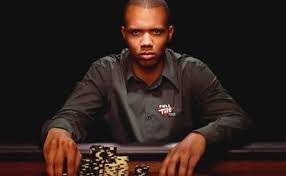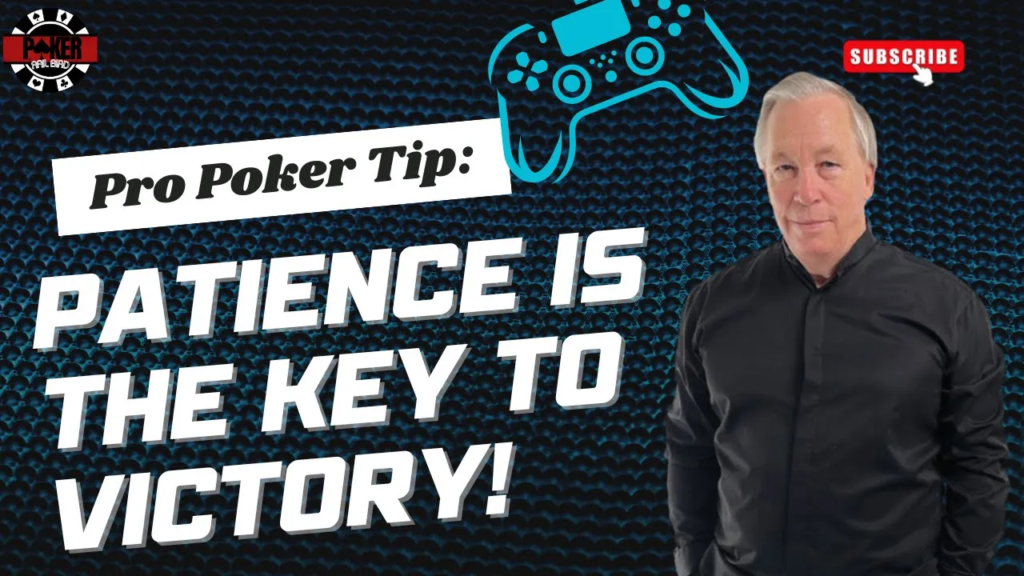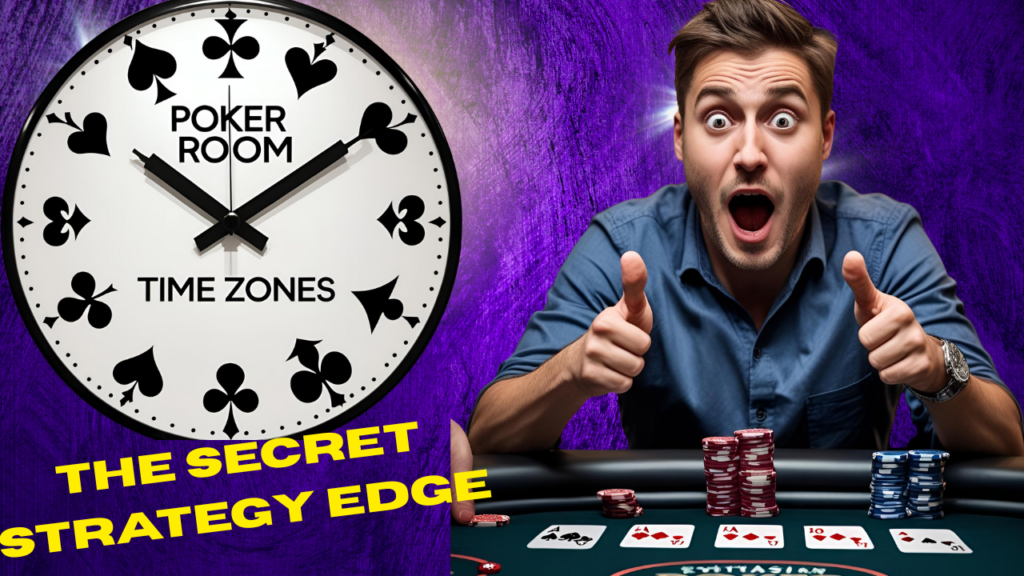EMOTIONAL INTELLIGENCE IN POKER
AVOID TILT & MAKE BETTER DECISIONS
In poker, emotional intelligence (EI) is just as vital as understanding pot odds or hand ranges. While technical skills are essential for success, the ability to manage emotions can be the difference between winning and losing. Emotional intelligence refers to the awareness and control of your emotions, as well as the ability to understand and influence the emotions of others. In poker, this can help players avoid falling into the trap of tilt—a state of emotional frustration that leads to poor decision-making.
Tilt occurs when players allow their emotions, whether anger, frustration, or overconfidence, to interfere with their logical, strategic thinking. It can be triggered by a bad beat, a string of losses, or even a confrontation with an opponent. Unchecked, tilt can ruin a session or even a player’s long-term success.
This article explores the connection between emotional intelligence and managing tilt at the poker table. By understanding and developing EI, poker players can recognize and control emotional reactions, stay focused on long-term goals, and ultimately improve their performance.
WHY THIS TOPIC MATTERS
Tilt management is a skill that many poker players struggle with. Even the best poker players experience emotional swings, but those with high emotional intelligence are able to maintain composure and make sound decisions, even under pressure.
The goal of this article is to provide practical strategies for improving emotional intelligence and managing tilt. We will explore the core components of EI, such as self-awareness, self-regulation, and empathy, and show how mastering these can improve your poker game. Understanding variance and the role of math in poker will also help players handle emotional triggers like bad beats with greater clarity and control.
For those who are serious about poker, mastering emotional intelligence is as crucial as any technical skill. This article, along with its accompanying video, will offer valuable insights into how you can strengthen your emotional game and avoid letting tilt affect your performance.

COMPONENTS OF EMOTIONAL INTELLIGENCE IN POKER
SELF AWARENESS
SELF REGULATION
MOTIVATION
Self-awareness is the foundation of emotional intelligence and one of the most crucial skills for poker players. It involves understanding your own emotions and recognizing how they impact your decision-making. At the poker table, self-aware players can identify when they are becoming frustrated or emotional, which allows them to take steps to prevent tilt before it starts. Without self-awareness, emotions can cloud judgment, leading to impulsive or reckless plays.
Self-regulation is the ability to control emotional responses, especially in high-pressure situations. Poker often places players in intense scenarios, where maintaining composure is key to making rational decisions. Players who master self-regulation can remain calm after a bad beat or when faced with a difficult opponent. Techniques such as deep breathing, taking a short break, or re-focusing on long-term goals help poker players manage their emotions and avoid tilt.
In poker, staying motivated is essential. Motivation in the context of emotional intelligence is not just about wanting to win, but about having the discipline to pursue long-term goals over short-term gratification. Emotionally intelligent players remain focused on improving their skills and performance, even when facing setbacks. They understand that poker is a game of the long run, and short-term losses or bad beats do not deter their overall progress.
EMPATHY
SOCIAL SKILLS
Empathy in poker is about understanding and interpreting the emotions of your opponents. Emotionally intelligent players can read opponents’ emotional states based on their actions, body language, and even betting patterns. This gives them a strategic advantage, as they can anticipate how an opponent might react in certain situations. Being able to identify when an opponent is tilting, nervous, or overly confident allows you to make better decisions and exploit their emotional state.
While poker is a competitive game, social skills play a critical role, especially in live games. Maintaining a positive table image and interacting with opponents can impact how others perceive and react to you. Strong social skills allow emotionally intelligent players to foster good relationships at the table, which can lead to psychological advantages. Players who excel in this area often create an atmosphere where others feel comfortable making mistakes, or they can subtly influence opponents’ decisions without them realizing it.
UNDERSTANDING VARIANCE & POKER MATH
A crucial, often overlooked component of emotional intelligence in poker is a player’s understanding of the mathematics of the game, particularly variance. Variance refers to the inevitable short-term fluctuations in results, even when playing perfectly. Emotionally intelligent players who understand variance are less likely to react negatively to bad beats or losing streaks because they know these are an inherent part of the game.
By internalizing the mathematical realities of poker, players can better manage their emotional responses and avoid letting short-term outcomes affect their long-term strategy. Without this understanding, players are more prone to frustration, as they may misinterpret bad luck as poor play, leading to tilt. A strong grasp of variance allows players to stay focused on making the correct decisions rather than being overly concerned with immediate results.
DECISION-MAKING UNDER PRESSURE
In poker, just like in life, players must make decisions based on incomplete and often limited information. They rely on pot odds, hand odds, and observed tendencies in opponents, all while navigating the uncertainty of unknown cards and future actions. Even with all the best data and analysis, the outcome of a decision can’t be controlled. A well-calculated decision can still result in a loss, and this is where emotional intelligence comes into play.
Emotionally intelligent players understand that while they can control their decision-making process, they cannot control the outcome. The key to long-term success is not in the immediate results of any one hand, but in the ability to consistently make the best decisions possible based on the information available. This mindset allows players to stay grounded, accept the outcome—whether favorable or not—and remain emotionally stable.
The moment a player goes on tilt, their ability to continue making sound decisions is compromised. By letting emotional reactions dictate future choices, the player becomes their own worst enemy. In contrast, staying composed and focused after an unfavorable outcome ensures that they remain in control, giving them the best chance to make informed and strategic decisions moving forward. The reality is that poker, much like life, is a game of probabilities, and remaining level-headed is the only way to ensure long-term success.
RECOGNIZING TILT TRIGGERS

Tilt can be triggered by a variety of situations, and identifying these triggers is the first step in managing emotional reactions. Common triggers include bad beats, losing streaks, an opponent’s aggressive or lucky play, and even fatigue or frustration from a long session. Emotionally intelligent players are aware of their personal triggers and can recognize when they are beginning to tilt, allowing them to take steps to prevent it before it escalates.
SHORT-TERM EFFECTS OF TILT
In the short term, tilt leads to impulsive decision-making and poor judgment. When players are on tilt, their emotional reactions override rational thinking, causing them to play hands they normally wouldn’t or make reckless bets. This typically results in immediate financial losses. Even one emotionally driven mistake can cause a downward spiral, leading to further losses in a single session.

LONG TERM CONSEQUENCES OF UNMANAGED TILT

When tilt is not properly managed, its impact extends beyond a single session. Uncontrolled tilt can erode a player’s confidence and cause them to question their abilities, leading to negative long-term effects on their game. Over time, tilt can become a recurring problem, damaging bankroll management, decision-making processes, and emotional well-being. Players who do not develop strategies to manage tilt often find themselves in a cycle of frustration and underperformance, making it harder to recover both emotionally and financially.
STRATEGIES TO IMPROVE EMOTIONAL INTELLIGENCE & MANAGE TILT
DEVELOPING SELF-AWARENESS
UNDERSTANDING VARIANCE & POKER MATH
MASTERING EMOTIONAL CONTROL & DISCIPLINE
Self-awareness is the foundation for controlling tilt. The first step in managing tilt is recognizing when it’s happening. Players can develop self-awareness by paying attention to physical and emotional signs, such as an increased heart rate, feelings of frustration, or the urge to make rash decisions. Keeping a journal or mental notes on when and why tilt occurs can help identify patterns, which allows players to anticipate and prevent tilt in future sessions.
One of the most effective ways to manage tilt is by understanding variance and the mathematical realities of poker. Players who grasp the concept of variance know that bad beats and losing streaks are not necessarily a reflection of poor play. Instead, they are an inevitable part of the game. By acknowledging that variance is out of their control, players can shift their focus to making the best decisions based on available information and avoid emotional reactions to short-term results.
Maintaining emotional control at the poker table requires discipline and practice. One technique is to anticipate emotional swings by preparing mentally for bad beats or rough sessions before they happen. Players can also use calming techniques, such as deep breathing or stepping away from the table for a moment, to regain composure after a tough hand. The goal is to stay focused on long-term success, knowing that short-term setbacks are inevitable. Avoiding impulsive reactions and making calculated decisions under pressure are key components of emotional control.
ADVANCED ABILITY TO READ & MANAGE BODY LANGUAGE
RECOGNIZING THAT EVERY HAND COUNTS
PRACTICING SELF-REGULATION
Poker is not only about the cards but also about reading opponents and managing your own emotional tells. Emotionally intelligent players learn to observe subtle cues in opponents’ body language, such as fidgeting, eye movements, or changes in betting patterns. These clues can help inform decisions and give a strategic edge. At the same time, controlling your own body language to avoid giving away emotional states is just as important. Mastering both of these skills can help prevent tilt and increase overall performance.
Poker is a game of constant learning and improvement. Emotionally intelligent players understand that every hand, whether they’re involved in it or not, provides an opportunity to improve their skills and emotional control. By treating each hand as a chance to practice staying calm, observing opponents, and making calculated decisions, players build the emotional resilience necessary to avoid tilt. Every hand offers valuable information, even if the outcome isn’t immediately favorable.
Self-regulation is the ongoing practice of managing emotions, especially during stressful or high-stakes moments. One effective strategy is to take regular breaks during long sessions to clear the mind and reset emotionally. Another technique is to set a limit for how much money or time you’re willing to invest in a session, which prevents impulsive decision-making when things aren’t going well. Developing routines that encourage self-regulation helps maintain emotional stability and prevent tilt from creeping in.
USING SELF-TALK TO MANAGE TILT
Self-talk is a valuable technique for maintaining emotional control when you feel tilt starting to creep in. When faced with a frustrating situation, such as a bad beat or a string of losses, the ability to talk yourself through what happened can help you remain calm and focused. Self-talk involves walking yourself through the decisions you made during the hand, acknowledging what went right and where things may have gone wrong.
Emotionally intelligent players use self-talk to understand the situation and reinforce their decision-making process. By reviewing each action, they can determine whether they made the best possible decision based on the available information or if there’s something to learn from the outcome. This introspective approach prevents the emotional spiral that leads to tilt. More importantly, self-talk reminds players that not every unfavorable result is within their control, and that variance plays a role in the outcome.

Self-talk also encourages players to stay focused on the next hand, rather than dwelling on the past. By reinforcing positive behavior and identifying areas for improvement, players can move forward with clarity and emotional stability, ensuring they remain in control of their game.
FAMOUS PLAYERS WHO MASTERED EMOTIONAL INTELLIGENCE
Several well-known poker players have built their success not only on technical skills but also on their mastery of emotional intelligence. Players like Phil Ivey, Daniel Negreanu, and Fedor Holz are known for their ability to keep their emotions in check, even in the most stressful situations. They have perfected the art of controlling their reactions, staying calm under pressure, and making rational decisions despite the emotional highs and lows of poker. These players have cultivated self-awareness and self-regulation, which allows them to avoid tilt and maintain focus throughout long tournaments.

- Daniel Negreanu is often praised for his ability to read opponents and stay in control of his emotions, using empathy to anticipate their actions while keeping his own emotional responses neutral.
Phil Ivey, known for his legendary “poker face,” rarely lets his emotions dictate his play. He’s a prime example of self-regulation, as his disciplined approach helps him avoid tilt and make rational decisions.

PERSONAL EXPERIENCE: A LESSON ABOUT TILT
THROWING PATIENCE OUT THE WINDOW
MY FAILURE TO THINK BEFORE ACTING
A few weeks ago, I was in a $1/$3 game at the Beau Rivage in Biloxi, MS. The Beau allows for a no-cap buy-in, so I started with $1,000. After several hours, I had barely played a hand—I was “card dead” and beginning to feel agitated. I watched players turn over hands at showdown that were far worse than the ones I had been folding pre-flop. Although this is a common occurrence, the irritation was starting to creep in that night.
Despite my frustration, I maintained my discipline and was only down about $250, mostly from folding after pre-flop calls. Then, sitting on the button, I was dealt King-Queen offsuit. It wasn’t a premium hand, but given my position and the modest $15 raise, I called.
The flop came King-Five-Queen, rainbow. I flopped top two pair, and when it checked around to me, I bet. One player called, and the small blind came along as well. The turn was the 3 of diamonds. The first player checked, and the small blind bet $65. I raised to $190. One player folded, and the small blind shoved all-in for another $210 on top.
Without a second thought, I called. But as soon as my chips hit the felt, I realized—in that split second of clarity—that he had a set of fives. It was too late to take it back. The river came a blank, and sure enough, he turned over pocket fives.
Normally, I never call an all-in or a big bet without taking a moment to think things through. Had I followed my own rule and paused for five seconds, I would have recognized what I was up against. I play with this opponent regularly, and I know his tendencies—he would never push all-in without the likely nuts. But that night, after hours of folding, I had lost my discipline and paid the price for it.
I didn’t show any emotion at the table, either before or after the hand. But inside, I knew I had made a critical mistake. Realizing I wasn’t in the right mental space, I racked up my remaining chips and called it a night. It took me some time to forgive myself for letting tilt affect my decision-making when I knew better. This experience was a clear reminder that even seasoned players are not immune to emotional lapses and that staying disciplined is key to long-term success.
RECAP OF KEY POINTS
Emotional intelligence is as crucial to poker success as technical skill. By developing self-awareness, self-regulation, and understanding variance, players can maintain emotional stability and avoid tilt. We’ve explored how players can identify tilt triggers, understand the effects of variance, and make disciplined decisions even under pressure. Techniques such as self-talk, reading body language, and practicing emotional control help players stay focused on long-term goals and avoid emotional spirals.
ENCOURAGEMENT TO DEVELOP EMOTIONAL INTELLIGENCE
FINAL THOUGHTS
Mastering emotional intelligence takes practice, but the benefits extend far beyond avoiding tilt. Players who build emotional resilience find that they are able to remain calm, composed, and strategic no matter the situation. These qualities not only improve performance at the poker table but also lead to better decision-making in other areas of life. The emotional swings of poker are inevitable, but learning to control them is what separates good players from great ones.
In poker, it’s not always about making the right decision in the moment, but about consistently making the best possible decisions over the long run. Accepting variance and remaining emotionally stable ensures that tilt doesn’t affect your ability to make sound choices. Emotional intelligence is the key to maintaining that stability. By investing in the development of emotional control, players set themselves up for long-term success both in poker and in life.




